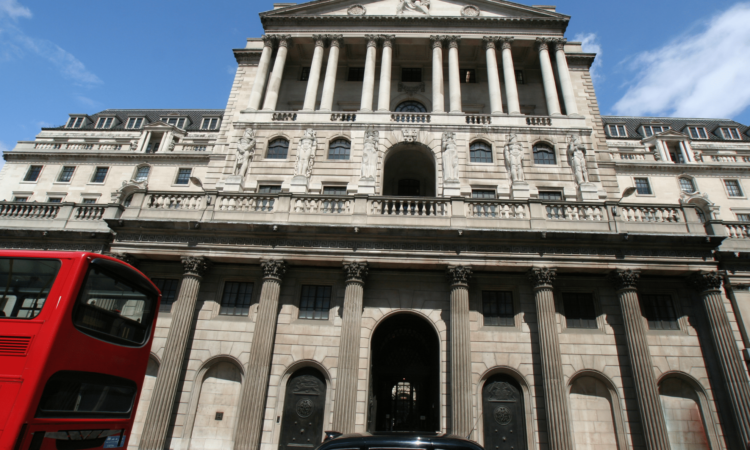
Economists, including those at the National Institute of Economic and Social Research (NIESR), warn that the Bank of England’s reluctance to share its plans for interest rate cuts may lead to a recession in the UK.
Economists’ Insights on Bank of England’s Role in UK Recession
Estimates from the National Institute of Economic and Social Research suggest that the UK entered a recession by the end of 2023, with GDP contracting by 0.1%. This downturn is partly attributed to the Bank of England’s decision to maintain high interest rates, which stood at 5.25%.
Ben Caswell, a prominent economist at NIESR, emphasized the potential impact of forward guidance on the UK economy, suggesting that it could have helped avoid a technical recession.
He also highlighted the comparative communication strategies of central banks, stating that the Bank of England has been less forthcoming than the Federal Reserve or the ECB in indicating the timing of rate cuts.
“The Bank of England takes this stance where they say, ‘When is a rate cut going to happen? We follow the evidence and will make a decision when the time is right.’ Whereas if you look at the Fed, they say, ‘We think rate cuts are likely during a given period’.”
Mr. Caswell emphasized that proactive communication with financial markets, similar to the approach taken by the Federal Reserve, can lead to reduced borrowing costs for households and businesses even before actual interest rate cuts. This, he argues, could help mitigate economic downturns.
NIESR forecasts indicate that inflation is projected to drop below the Bank of England’s 2% target during the second quarter of this year, driven in part by a decrease in energy prices due to a renewed energy price cap.
This development is expected to prompt the Bank of England to initiate interest rate cuts by May, as indicated by projections from the think tank. It is anticipated that the central bank will gradually reduce its base rate to 3.25% by the beginning of 2026.
This trend aligns with a decrease in job vacancies, which have recently dipped below pre-pandemic levels for the first time. This development has raised expectations that the Bank of England will take action to stimulate economic activity through interest rate cuts.
Data from the employment website Indeed indicates that advertisements for new job roles are currently 5% lower than they were in February 2020, highlighting a notable decline in job vacancies.
This downturn marks the conclusion of the post-pandemic hiring surge, during which vacancies soared and employers faced intense competition for jobseekers. Factors such as changing consumer preferences and shifts in industry demand have contributed to this shift in the job market.
This development will likely be welcomed by rate-setters at the Bank of England as a positive indication that higher interest rates have been effective in cooling the economy.
Inflation Battle Unveils Dissent: Calls for Caution Amid Labour Market Strain
Policymakers, in their efforts to combat inflation, view the tight labour market and rapid wage growth as significant threats to economic stability.
Swati Dhingra, the sole member of the nine-strong Monetary Policy Committee to have advocated for a rate cut, expressed her concerns in an interview with the Financial Times. She emphasized the potential negative impact on the real economy and questioned the rationale behind taking such risks.
Additionally, the Treasury Select Committee issued a cautionary statement, urging the Bank of England to refrain from implementing quantitative easing measures during any future financial crisis.
Members of Parliament emphasized shortcomings in the rules governing quantitative easing, noting inadequate protections for taxpayers against potential losses.
They characterized the unwinding of the extensive bond buying program as a risky endeavour, describing it as a ‘leap in the dark’.
“It strikes us as highly anomalous that decisions have been and are being taken concerning huge sums of public money without any regard to the usual value-for-money requirements,” MPs warned in a report.
“Given what we now know, any future quantitative easing should not proceed automatically under the existing arrangements. Instead, the arrangements should be revisited in the light of the implications for value-for-money, public spending and Bank independence.”






